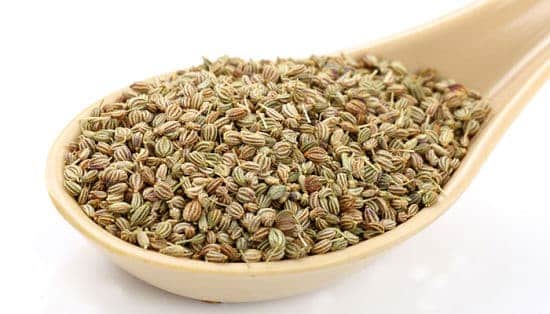Sinus congestion is extremely annoying and aggravating, especially if it’s chronic. Some people are just born with narrower sinus pathways and doomed to barely breathing for a couple of weeks every time seasons change. This condition also seems to run in families.
If you suffer from it, the home remedies for sinus congestion in this article, which include nasal infusions with salt water and treatment with sea cucumbers, are going to help you as long as you can get past that “eeewwww” moment.
Causes of Sinus Congestion
In the vast majority of cases, sinus congestion is caused by an infection of the sinuses (cavities around the nose, eyes and cheeks). Thick yellow or greenish mucus is expelled through the throat and nose, and if left untreated the sinuses flare up, closing the hole trajectory to the nose and throat. Then more and more mucus gets stuck in the sinus cavity, resulting in pain in the area.
The different types of sinuses include frontal (in the forehead), maxillary sinuses (inside the cheekbones) the Etmoid behind the nose bridge and the Sphenoid behind the Etmoid.
A virus infection, bacteria or foreign substances can cause an allergy, which in turn can result in swelling of the mucous membranes of the nose.
If the allergy is prolonged and left untreated, it may result in chronic sinusitis. Inhaled allergens such as pollen, dust, mold, animal dander and others cause swelling and allergic reactions that can bring about an attack of sinusitis.
If you are suffering from osteo metal complexes, you are more likely to fall victim to sinus congestion.
An upper respiratory tract infection that results in blockage of the passage from the sinuses to the nose and throat causes mucus to build up.
Signs and Symptoms of Sinus Congestion
Below are the most common signs and symptoms of sinus congestion:
- Watery discharge through the nose or throat.
- Pain and distress in the affected area that increases when you tap your finger on it or shake your head
- Pain behind the eye – this is a possible indication of ethmoid sinusitis.
- Pain in the lower forehead and eyebrows – possible indication of frontal sinusitis.
- Pain behind the eyes, in the temples or on top of your head.
- Pain in the cheeks and upper teeth.
- Fever, toothache, headache
- Deteriorating sense of smell
Treatments

Sinus congestion can be more than merely aggravating. It is crucial to treat it immediately because it can cause other problems, such as sleeplessness and ear infections.
There are many ways to clear sinus congestion - some remedies are already available in your kitchen and you may know about them. Read on to find out about some really effective ones that you may not have heard of or have not dared try! They’ll help relieve your discomfort until your nose clears and you are well again.
1. Sea Cucumber Drops – Yes, That’s Right

Photo Credit: shop.zdravnitza.com
Sea cucumber is a perennial plant with heart-shaped leaves and a wide stem. The fruit is elongated. When reaching maturity, the seeds drop when in contact under pressure. The plan grows along the Black Sea and in a wide variety of regions in Bulgaria, Serbia and Romania. It blooms from June to September.
Required Ingredients:
Process:
1-2 drops in each nostril, 3-4 times a day. When applying the drops, hold your head to the side. You will have a stinging sensation, which is normal. After applying, let the drops pass through the sinus pathways and flow out to avoid an unpleasant sensation in the throat.
Use the drops until your sinuses clear. If the congestion returns, start using them again until it clears.
The tincture is a strong extract from the plant, but nonetheless natural, so you can use it without any problem if you are pregnant.
Note: Do not apply more than instructed as it can have a host of adverse effects. For instance, sea cucumber tincture is a drastic purgative laxative, used to treat edema, jaundice and hepatitis, rheumatism, sciatica and neuralgia in different amounts.
Consult your doctor before treating children with it.
2. Steam Inhalation – You Never Thought It Would Be So Simple

Photo Credit: heartbowsmakeup.com
Steam inhalation therapy is a commonly applied natural remedy for instant relief from sinus congestion. This remedy works a natural expectorant, increasing the bronchial secretion and facilitating the expulsion of mucus by air passages of the lungs. This will make it less difficult for you to cough up the phlegm.
Required Ingredients:
- One tablespoon of crushed carom seeds
- A cup of water
Process:
Boil the water and add the seeds (also known as ajwain). Inhale the steam. Make sure to keep your head one meter or so away from the cup where you are inhaling the steam.
You can also run a hot shower until the steam builds up in the bathroom, then breathe it in. it is recommended that you do this twice a day until the sinuses clear.
Another option is to soak a washcloth in warm water and place it over your face. Leave it on for 12 minutes. Do this a few times a day.
You can inhale the steam from boiling water after adding a few drops of peppermint essential oil to it.
Notes: Steam inhalation is generally not recommended for children because they can burn themselves. It may also not be advisable for pregnant women, people with central nervous system disorders, a heart condition or high blood pressure.
If you have a cough along with sinus congestion (they go hand in hand), you can supplement the nasal irrigation with a lemon or honey cough drop.
3. Nasal Irrigation with Neti Pot – Here Comes That “Ewwwww” Moment!

Photo Credit: PopDropDiffuse.com
Sinus congestion is treated with nasal irrigation using a saline solution. Use a Neti Pot – this is a simple pot with a spout that is available online or in pharmacies. You put water in and inhale it from one nostril. The mucus is cleared out and comes out the other nostril.
The solution will help wash away mucus from the nasal passages. Warm water can work great, keeping the nasal passages moist.
Basil oil and tea tree oil are all good to use in a Neti pot along with non-iodized salt.
Required Ingredients:
- One teaspoon of non-iodized salt
- A quarter tea spoon of baking soda
- Two cups of distilled or boiled warm water.
Process:
Fill the Neti pot with warm / lukewarm water, add the salt and the baking soda and pour the mix through one nostril. The water will flow out the other. Keep doing this until both nostrils are cleared.
The water irrigates the nasal cavities and reduces allergic symptoms. It also helps in clearing snot.
Use it several days once or twice a day and you will notice remarkable improvement.
Make sure you are using non-iodized, not regular salt. You can find out more about the difference between these two types of salt here.
Note: Take care to use boiled or distilled water – I can’t stress this enough. Tap water is dangerous. Also, do wash the pot after each use.
Do not worry - distilled water is completely safe for internal use.
4. Eucalyptus Oil – Treats Thousands of Other Conditions Too

Photo Credit: jujuaroma.com
Once upon a time there was an Englishman who was cutting down trees too vigorously and almost severed his thumb with his ax. His father, a man deeply familiar with Aboriginal folk medicine, immediately came to his rescue, applying a tight bandage of eucalyptus leaves to the wound.
The Aborigines used eucalyptus to heal most wounds they. A surgeon saw the man’s wound a few days later and was amazed by how quickly the thumb had healed, and moreover, there was no trace of an infection.
If it can heal wounds, can you imagine what it will do for your sinuses?
Eucalyptus oil is extremely helpful for those suffering from sinus congestion thanks to its anti-inflammatory and decongestant properties.
Required Ingredients:
- A few drops of eucalyptus essential oil
- A clean tissue or handkerchief
Process:
All you need to do is pour a few drops of the oil on the tissue and inhale the aroma. Do this a few times every day. You can also pour a bit of essential oil on your pillow – it will work against your sinus congestion as you sleep.
The eucalyptus tree is an evergreen native to Australia. Its essential oils have a myriad of powerful medicinal properties.
5. Apple Cider Vinegar – Works with Regular Vinegar

Photo Credit: Prevention.com
When I have a sinus attack, I can’t do without apple cider. It has a host of amazing medicinal properties and can work miracles for sinus congestion.
How does it work? Apple cider softens the mucus and makes it easier for the sinuses to expel. This also helps reduce the headache resulting from the obstructed sinus pathways.
Required Ingredients:
- One cup of water
- One teaspoon of apple cider or regular vinegar
Process:
It’s very simple – bring the water to a boil, add the apple cider vinegar and inhale the vapor until you start sneezing. The warm vapor makes the dry mucus soften.
6. Natural Oil Mix – A Delight for the Senses

This remedy is a bit more complicated and costly – you have to get all-natural oils or it won’t work. They are available in specialized stores.
Required Ingredients:
- Three drops of virgin coconut oil
- Two drops of hot mustard oil
- Four drops of cinnamon oil
- Four drops of clove oil
- Four drops of thyme oil
Process:
Heat up a pan of water, add the oils and stir. Standing a safe distance away from the stove, lean forward and inhale through the nose, one nostril at a time. The aroma is very intense, so do not breathe it in for more than two minutes! Do this for about a week or until your sinuses clear.
Note: Do not do this if you have heart problems or high blood pressure.
How to Prevent Sinus Congestion
Sinus congestion is a sure thing if the prerequisites are in place – a lot of stress, low food quality and exposure to toxic chemicals. Avoid eating sugar or grains, take omega-3 supplements for their amazing anti-inflammatory properties (only animal-based ones), and sustain your vitamin D levels by getting the right amount of exposure to the sun the whole year.
Avoid eating mycotoxic foods, exercise regularly, and make sure you are getting as much sleep as you need.
Temperature and Humidity = Congestion
Changes in temperature, high humidity, smoke, fumes, perfume and bright light are potential triggers of sinus congestion. By changing temperature and humidity levels of the air you breathe, you may be less prone to congestion.
A study shows that the ideal level of humidity for healthy sinuses is around 40 percent. This level is also generally recommended against mold growth on your property. To measure the humidity, buy a hygrometer – these are sold in most home improvement stores.
This study showed that dry air at room temperature and cold air were associated with a market decrease of congestion. If the humidity in your office or home is over 45%, try bringing down the amount of moisture in the air to prevent congestion.
To reduce humidity:
- Turn on the air conditioner
- Use a dehumidifier
- Take briefer colder showers
- Install a fan in your kitchen and bathrooms
Sometimes indoor humidity is high even in the absence of high outdoor humidity. Leaky pipes or roofs can also be a cause. High humidity will cause mold to grow and cause sinus congestion, so use a large dehumidifier to lower the humidity until you resolve the issue.
The air shouldn’t be too dry either, because it might irritate your sinus membranes. To increase humidity, you can use a vaporizer or humidifier.
Conclusion
Did you find anything on our list of home remedies that you would try? Sinus congestion may cause sinusitis, a painful, lifelong condition, so now you might have found a simple and inexpensive cure! Please tell us what you think in the comments and share this article so you can help other people out there (relatives are likely to be among them) who also suffer from sinus congestion.


